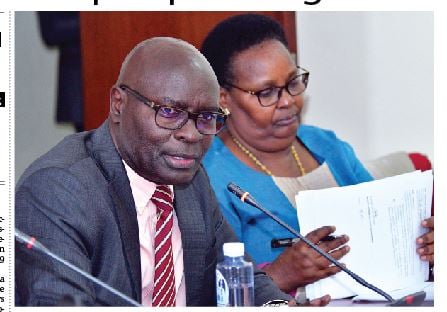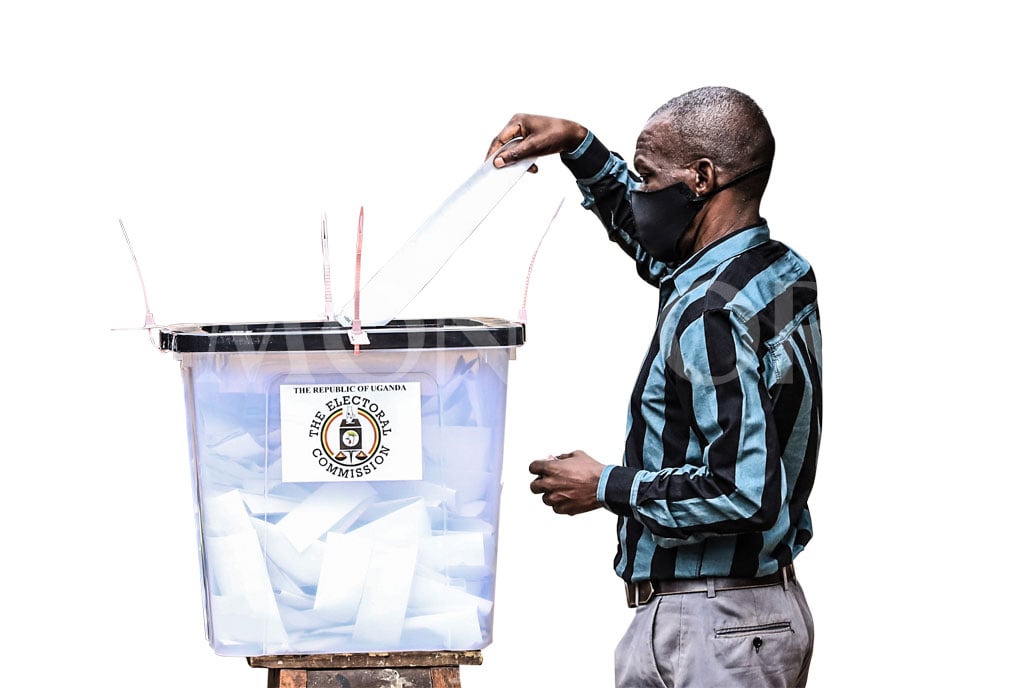EC warns budget shortfalls will hit 2026 poll planning

What you need to know:
- Appealing for parliamentary intervention, the Electoral Commission (EC) says Shs756.988 billion, comprising the largest chunk of the planned budget, is needed to cover electoral roadmap activities.
Senior management at the Electoral Commission on Wednesday warned they may fail to deliver a proper general election in 2026 if their planned Shs1.119 trillion budget is not covered.
The EC raised the red flag in a meeting with the House Committee on Legal and Parliamentary Affairs while presenting their budget proposals for 2024/25.
Commission chair, Mr Simon Byabakama joined his accounting officer, Mr Leonard Mulekwa in submitting a report showing that only Shs150.183 billion of the required monies has been catered for in the 2024/25 budget.
“The total funding requirement for the FY 2024/2025 amounts to Shs1.119 trillion but only Shs150.183 billion was allocated, leaving a funding gap of Shs969.282 billion,” the EC statement read in part, adding, “…this implies that the budget is grossly underfunded and the commission will not be in a position to implement all the planned activities.”
Appeal
Appealing for parliamentary intervention, the EC said Shs756.988 billion, comprising the largest chunk of the planned budget, is needed to cover electoral roadmap activities.
“These comprise of the roadmap planned activities for the first phase that were to be implemented in FY 2023/24 and the second phase (FY 2024/25) of the 2025/2026 general elections where several activities amounting to Shs765 billion for both phases were planned for implementation but only Shs8.638 billion was provided, leaving a funding gap of Shs756.988 billion,” the report said.
Mr Mulekwa noted the money was largely to be spent on phase I and phase II activities of the 2025/2026 general elections.
Among others, these include demarcation of Parliamentary constituencies and local government electoral areas.
Also, “the commission requires Shs3.330 billion for continuous voter education…however, only Shs0.312 billion has been provided”.
The Commission said it has partially operationalised activities in 10 new cities of Jinja, Mbarara, Gulu, Arua, Masaka, Fort Portal, Mbale, Soroti, Hoima and Lira and one district of Terego, that took effect July 1, 2020.
“The cities are at the level of a district for purposes of elections but have continued to operate as desks in the mother districts. This creates operational challenges in those jurisdictions,” the EC said.
Committee members heard that establishing an electoral office costs Shs659,507,841, “translating into Shs7.29 billion for the said areas”.
Tough history
Last year, the EC failed to conduct local council I and II elections whose term expired in July 2023 after the Ministry of finance failed to provide the necessary funds.
Women councils whose tenure expired in August 2022 have also not been elected to date on account of no funding.
Failure to conduct these elections has called into question the legality of their work even though the government extended the tenure of local councils twice through statutory instruments.
In the run-up to the 2021 election, the Commission still complained of late disbursement of funds that affected their activities.
“We are working within our means and hoping the government will release the remaining money. It is inconveniencing and we may not plan effectively,” Mr Byabakama said in 2019
Cost worries MPs
Some of the MPs used the meeting to question the colossal amounts required by the electoral commission. Pian County MP, Mr Remigio Achia called for research into how the country can hold cheaper elections.
“I think we should discuss how we can make elections cheaper. I don’t know whether there has been a discussion or whether you have a research department within the electoral commission to see how we can make elections cheaper,” he said.
However, his Bukooli counterpart Mr Stephen Baka Mugabi blamed the high cost on the increase in several electoral offices.
“The problem is not Electoral Commission, the problem is with us [because] we are the ones who are creating all these constituencies, electoral areas and now seeking to down-size the rest of government except the political class,” Mr Mugabi said.
Affected roadmap activities
Originally, the roadmap activities were expected to start next month but because no funds were availed in the current financial year, they were postponed to the first quarter of the 2024/25 financial year. The activities include:-
• Recruitment, training and deployment of sub-county and parish supervisors and sign language interpreters at district/city level.
• Procurement and upgrade of ICT equipment and materials.
• Demarcation of electoral areas.
• Re-organisation of polling stations.
• Alignment of re-organised polling stations to villages and electoral areas.
• General update of the national voters register.
• Verification of youth, PWDs, older persons, workers and army voters register.
• Display of voters register at polling stations.
• Display of tribunal recommendations at each parish.
• Benchmarking on use of technology
• Training commission staff.
• Voter education and publicity.
• Support to the national consultative forum.
• Financial remittances to political parties and organisations with representation in Parliament.
• Construction of EC premises.




